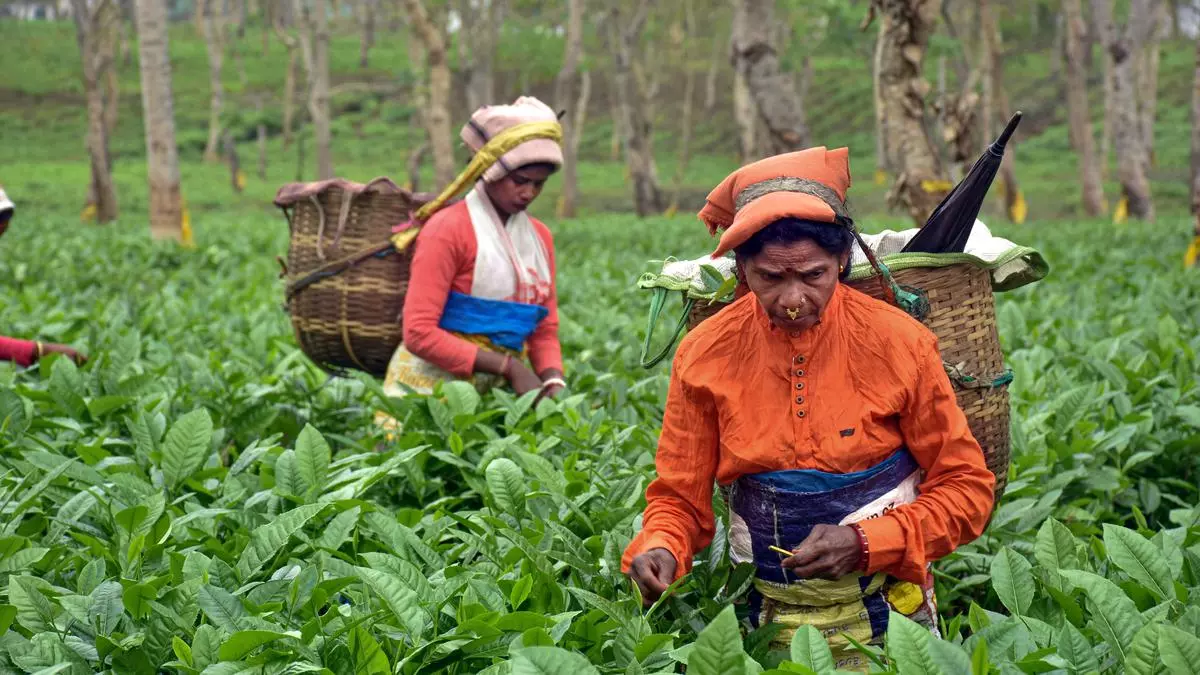Heatwaves, lack of rain take a toll on tea production in North Indian estates
Including extreme weather conditions heat waves The lack of sufficient rainfall in the tea-growing regions of northern India including Assam and West Bengal has affected the yield of the crop affecting quality and quantity.
In April this year, the total crops in North India decreased by 8.74 million kg at 63.71 million kg compared to 72.45 million kg last year. However, during January-April 2023, the total harvest in North India increased slightly by 5.63 million kg (4 per cent) at 132.13 million kg. The yield in South India decreased by 8.08 million kg at 59.85 million kg during January-April 2023 compared to the same period last year. Therefore, the country’s total production decreased by 2.45 million kilograms at 191.98 million kilograms (194.43 million kilograms) during the cited period.
According to leading industry experts, erratic weather patterns, extreme temperatures, and lack of precipitation severely affected the quality and quantity of tea production. The Tea Association of India (TAI) said that in addition to climate challenges, the industry is facing weak demand in both the domestic and international markets.
Also read: Small tea growers made India self-reliant in production
During May 2023, Assam recorded approximately 30-40 percent decrease in rainfall while in North Bengal it decreased by 15-25 percent. While production in Assam in May is estimated to have increased by about 15-20 per cent, the same is likely to decrease in Duars by 18-20 per cent and in Darjeeling by about 35 per cent. “The outlook is not looking very good. There was scant rain in May, and in June we are now starting to have showers. The first flush crop has been hit hard. If the rainfall increases in the following days, the first flush crop has been badly affected,” said Sujit Batra, former secretary of the Indian Tea Association. , then we can expect to increase the yield of the second flush crop. Business line.
Prices are on the rise
The lower yield led to stable prices at various auction centers. According to the data available on the Tea Board of India website, the average prices of CTC papers and soils for the week ending June 3 increased by around 5 per cent at around INR 199 per kg at the Kolkata Auction Center; about 13 per cent up to ₹ 207 per kg at the Guwahati Auction Center; Approximately 9 per cent up to ₹ 131 per kg at Cochin Auction Center and approximately 11 per cent at ₹ 93 per kg at Coonoor Auction Centre.
Also read: He urges small tea growers to properly implement the price-sharing formula
Domestic tea production during calendar year 2022 remained flat year-on-year and was approximately 4 percent lower compared to pre-COVID (CY2019) levels. Three consecutive years of declining production, after 2019, coupled with a large increase in exports in 2022, will keep domestic pipeline inventories at a low level, thus providing some price support in the new season until at least July peak production. – August, said a recent report of the International Public Relations Agency.
